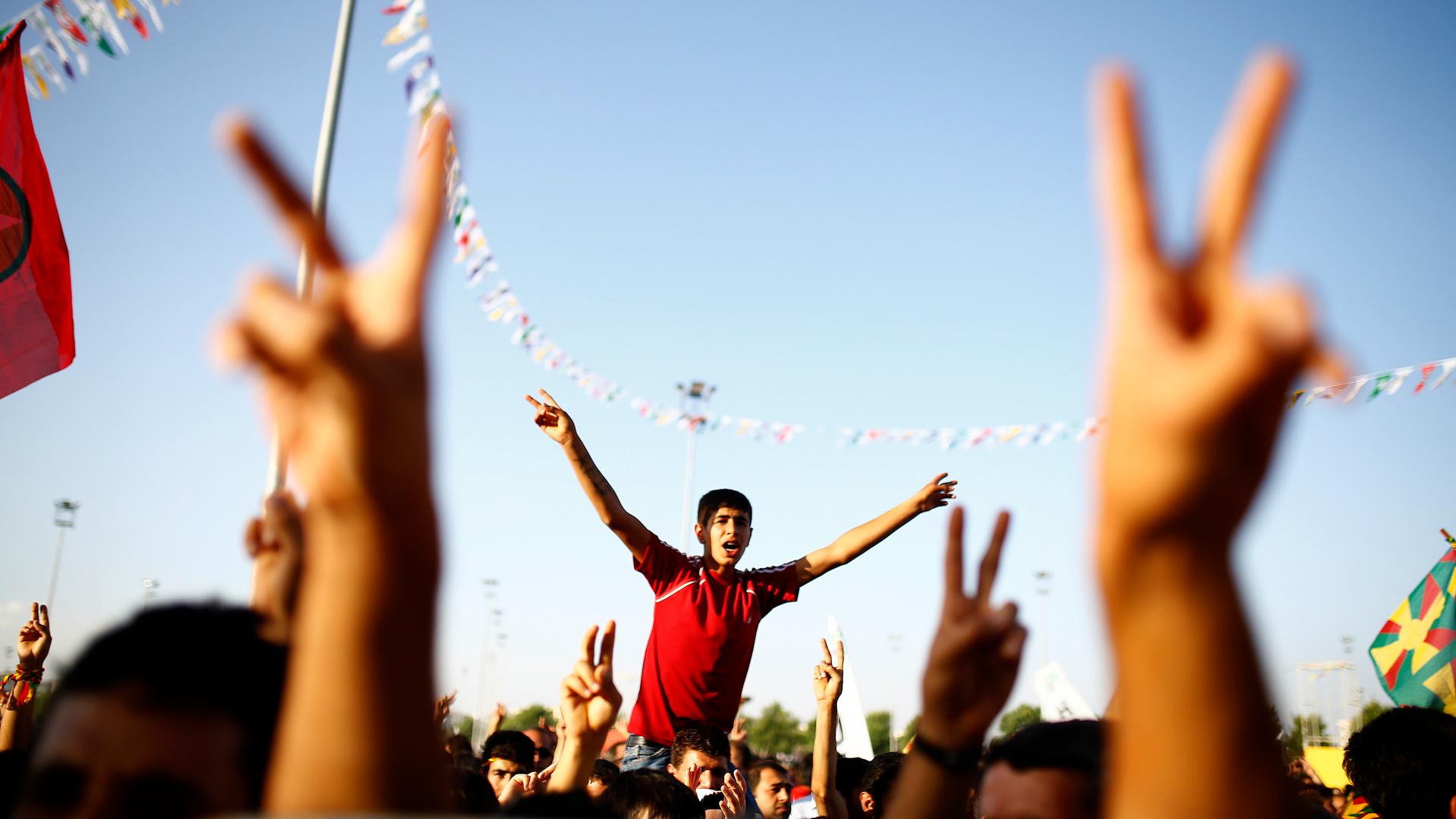Election results shake up Turkish politics
Opposition supporters celebrate in eastern Turkey.
An election in Turkey has thrown that country's future into confusion. For 13 years, the moderate Islamic AK party has run Turkey with a firm hand. But the AKP just lost its majority.
The party now has 45 days to try to form a coalition. If it fails, other smaller parties might try, or there may have to be fresh elections. The uncertainty has led to declines both on the Turkish stock market, and in the value of the currency, the lira.
Turkey is a key regional player on issues vital to US interests, such as confronting ISIS and dealing with the civil war in Syria.
One likely casualty of the election will be the ambitions of former AKP leader President Recep Tayyip Erdogan, to try to change the constitution to expand the executive powers of the presidency.
“There had been growing concerns both here and outside the country (at) the growing authoritarianism,” says Zeynep Tufekci. Tufekci, who is of Turkish descent, is an assistant professor at the University of North Carolina, Chapel Hill, and also a fellow at Harvard's Berkman Center for Internet and Society. Her work focuses on how technology and activism intersect, all over the globe.
Tufekci says the election has another plus side.
“One of the most important lessons of this election was that it is possible and in fact quite desirable to resolve internal disputes through elections. … I mean what I’m trying to say is that I’m pleased by how ordinary this feels, that there’s an election, and the ruling party that’s been in power 13 years no longer has a majority, and it doesn’t feel extraordinary at all.”
A lot of young people that Tufekci has spoken with hightlight the fact that they’ve never known any other government than that of the AK party, and many are wondering what happens next.
Another significant change is the advent of a Kurdish-dominated party, the People’s Democratic Party, which for the first time surpassed the 10 percent threshold required to be granted seats in parliament under Turkey’s proportional representation system. The Kurds have long suffered discrimination and persecution in Turkey.
Every day, reporters and producers at The World are hard at work bringing you human-centered news from across the globe. But we can’t do it without you. We need your support to ensure we can continue this work for another year.
Make a gift today, and you’ll help us unlock a matching gift of $67,000!
